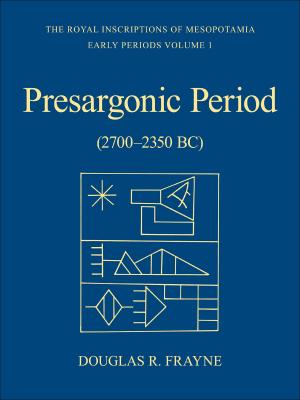The French-Canadian Idea of Confederation, 1864-1900
Nonfiction, History, Reference, Historiography, Americas, Canada| Author: | A.I. Silver | ISBN: | 9781442659346 |
| Publisher: | University of Toronto Press, Scholarly Publishing Division | Publication: | December 15, 1997 |
| Imprint: | Language: | English |
| Author: | A.I. Silver |
| ISBN: | 9781442659346 |
| Publisher: | University of Toronto Press, Scholarly Publishing Division |
| Publication: | December 15, 1997 |
| Imprint: | |
| Language: | English |
At Confederation, most French Canadians felt their homeland was Quebec; they supported the new arrangement because it separated Quebec from Ontario, creating an autonomous French-Canadian province loosely associated with the others. Unaware of other French-Canadian groups in British North America, Quebeckers were not concerned with minority rights, but only with the French character and autonomy of their own province.
However, political and economic circumstances necessitated the granting of wide linguistic and educational rights to Quebec's Anglo-Protestant minority. Growing bitterness over the prominence of this minority in what was expected to be a French province was amplified by the discovery that French-Catholic minorities were losing their rights in other parts of Canada. Resentment at the fact that Quebec had to grant minority rights, while other provinces did not, intensified French-Quebec nationalism.
At the same time, French Quebeckers felt sympathy for their co-religionists and co-nationalists in other provinces and tried to defend them against assimilating pressures. Fighting for the rights of Acadians, Franco-Ontarians, or western Métis eventually led Quebeckers to a new concern for the French fact in other provinces.
Professor Silver concludes that by 1900 Quebeckers had become thoroughly committed to French-Canadian rights not just in Quebec but throughout Canada, and had become convinced that the very existence of Confederation was based on such rights.
Originally published in 1982, this new edition includes a new preface and conclusion that reflect upon Quebec's continuing struggle to define its place within Canada and the world.
At Confederation, most French Canadians felt their homeland was Quebec; they supported the new arrangement because it separated Quebec from Ontario, creating an autonomous French-Canadian province loosely associated with the others. Unaware of other French-Canadian groups in British North America, Quebeckers were not concerned with minority rights, but only with the French character and autonomy of their own province.
However, political and economic circumstances necessitated the granting of wide linguistic and educational rights to Quebec's Anglo-Protestant minority. Growing bitterness over the prominence of this minority in what was expected to be a French province was amplified by the discovery that French-Catholic minorities were losing their rights in other parts of Canada. Resentment at the fact that Quebec had to grant minority rights, while other provinces did not, intensified French-Quebec nationalism.
At the same time, French Quebeckers felt sympathy for their co-religionists and co-nationalists in other provinces and tried to defend them against assimilating pressures. Fighting for the rights of Acadians, Franco-Ontarians, or western Métis eventually led Quebeckers to a new concern for the French fact in other provinces.
Professor Silver concludes that by 1900 Quebeckers had become thoroughly committed to French-Canadian rights not just in Quebec but throughout Canada, and had become convinced that the very existence of Confederation was based on such rights.
Originally published in 1982, this new edition includes a new preface and conclusion that reflect upon Quebec's continuing struggle to define its place within Canada and the world.















